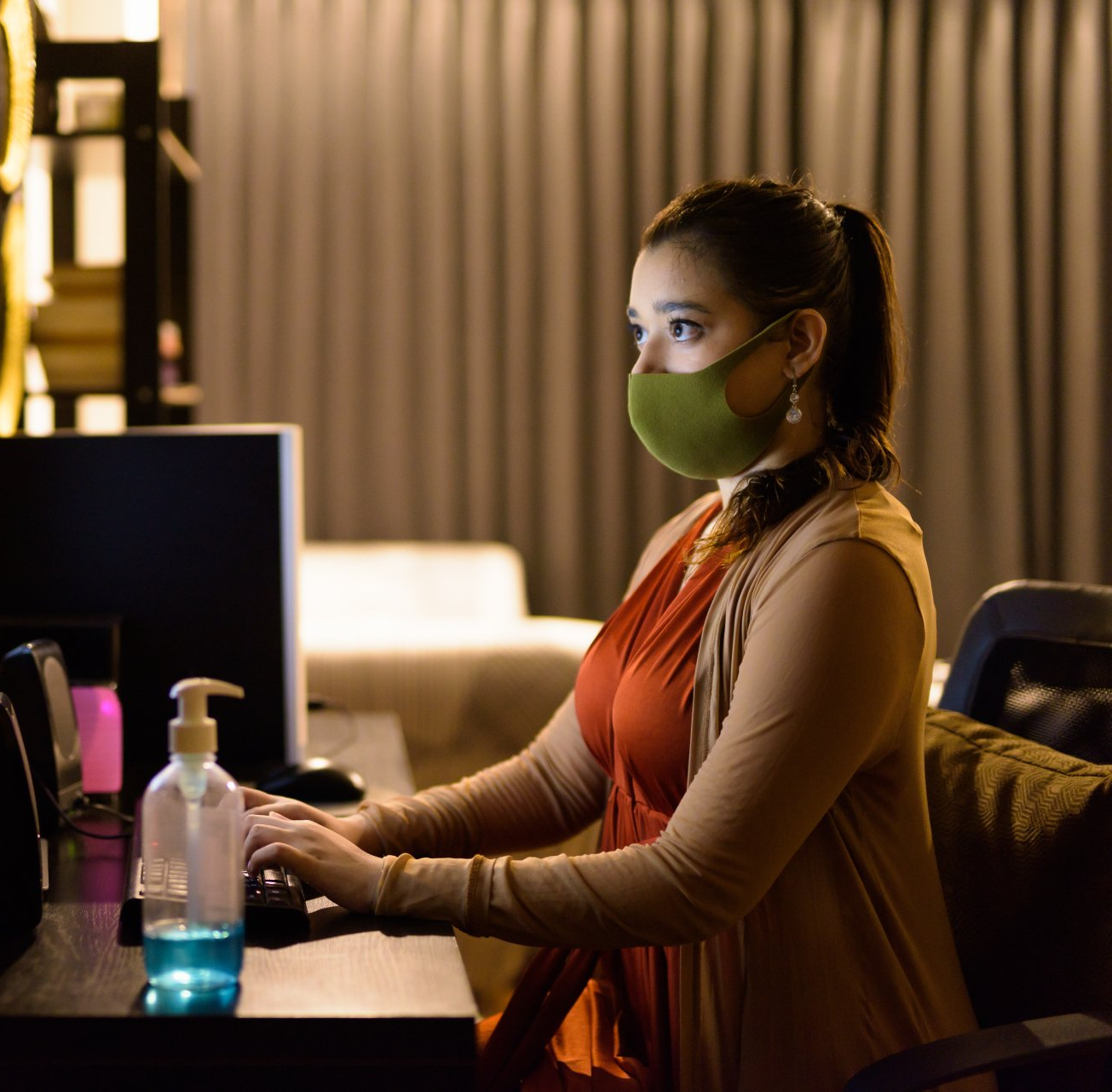News
In the news

By Krystal Armstrong
•
18 Dec, 2020
Many relationships during the pandemic and holidays have been tested. Marriage vows are teetering and the thoughts of “for worse” starts to become more consistent. There are a range of emotions that are occurring simultaneously and have single handedly taken over like a thief in the night. The one piece of comfort is the cliché, “There is a light at the end of the tunnel.” However, you often question where is this light? Is it dim? Is it covered with debris? Is it even there? We were not prepared for this! One of the books that I highly recommend is the 5 Love Languages by Gary Chapman. When I mention this book in sessions, the response that is usually given is, “Oh yeah that book. We read it years ago.” If you know my counseling style, my response is typically, that one should read the book again. It will not answer ALL your problems, but it can help as a starting point with a combination of psychotherapy. Love languages change over time. What satisfied a person in 1990 doesn’t anymore in 2020/2021. As a result, frequent conversations, questionnaires, can be fun and entertaining but also enlightening. I challenge all couples to take another look at this book. Use this book as you go through therapy and figure out how to reestablish a healthy relationship.

By Krystal Armstrong
•
11 Nov, 2020
Mental Health Fist Aid is an 8-hour training to teach participants how to help someone who is developing a mental health problem or experiencing a mental health crisis. The evidence behind the program demonstrates that it helps trainees identify, understand, and respond to signs of mental illnesses and substance use disorders. As a certified Mental Health First Aid Instructor, I would be happy to train individuals in your organization. Please feel free to contact me or click here to download our brochure.

By Krystal Armstrong
•
11 Nov, 2020
Mental Health Awareness Month has historically been a time where the community and behavioral health care providers come together and encourage, educate, and assist individuals on mental health issues. This means tons of marketing, countless articles, masses of resources being distributed. However, the question posed at this moment, in the middle of a pandemic…. What is next? How are our family members, friends, and other individuals going to move forward? What is forward? Yes, it is great that COVID-19 death numbers are declining, and that people are remaining safe in their homes. However, I don’t know if we are out of the woods yet which, in turn, will bring in another layer of obstacles. Interventions or coping skills that behavioral healthcare providers would formulate with their clients are no longer feasible. “Amber, when you start to isolate yourself, go to the store, library, socialize with others.” However, Amber is now faced with conflicted information due to stay at home orders that prohibit activities that were once realistic. This is what we are going to be faced with. This what are seeing and hearing as I type this. So what’s the answer? Is there answer? What do we do as a community? What do we do as a friend, daughter, mother, father, etc. to a loved one that is battling mental illness? Our once clinically managed depressed friend has now spiraled downwards and is not responding to text messages and/or avoiding our calls. Our obsessive-compulsive neighbor is visibly taking their garbage out several times a day. Our loved one is starting to self-medicate with drugs or alcohol or yet, both! The knife that was safe in the drawer, it now begins to look like the only object to help your child cope. The outlook no longer looks promising. Mental Health Awareness 2020 goes beyond “awareness” but also treatment, recovery, and sustainability. Here are some ideas, suggestions, and quite frankly some realistic ways to help a loved one through these hard times without being able to physically hold their hands through the process. Find alternate ways to communicate with your loved ones. There are multiple platforms that allows you to “lay eyes” on your loved ones. This could include video calls such as Zoom, FaceTime, Skype, Duo, etc. Utilize these systems. Good old-fashioned communication. Mail them an encouraging letter. “Hey mom, I know you’re probably having a rough time, however, keep this note next to you and know that I love you and I’m rooting for you”. As a mental health practitioner, I’ve even encouraged my patients to put their “love notes” in a hot spot. This hot spot could be the refrigerator or cabinet where the alcohol was stored. The safe that once stored the gun. Instead of grabbing those objects, we want our loves one to grab the note and stay encouraged. Know the resources. Yes, NA/AA, NAMI, and other support groups are no longer congregating; however, there are other ways to gain support from peers. Most support groups are on chatlines, proceeding with video conferencing, or having conference calls. Journal, Journal, and Journal! Most clients hate to journal. Most of the excuses are surrounded with not having a lot of time to do this. Now time is available. No more stating that we need more than 24-hours in a day. We have nothing but time. Expressing your feelings on paper is a healthy outlet. Use it. When in doubt, when you have tried all you could, used every tool in your toolbox and it still is not helping, call for help. Let’s encourage some of these pointers. When the power of touch is no longer available, we must use the power of love, determination, and advocacy for your loved one.
Let's Talk
The first step in therapy is talking. Let's find a time where we can meet and talk about what's on your mind.
Subscribe to Our Email List
Contact Us
Thank you for contacting us.
We will get back to you as soon as possible.
We will get back to you as soon as possible.
Oops, there was an error sending your message.
Please try again later.
Please try again later.
